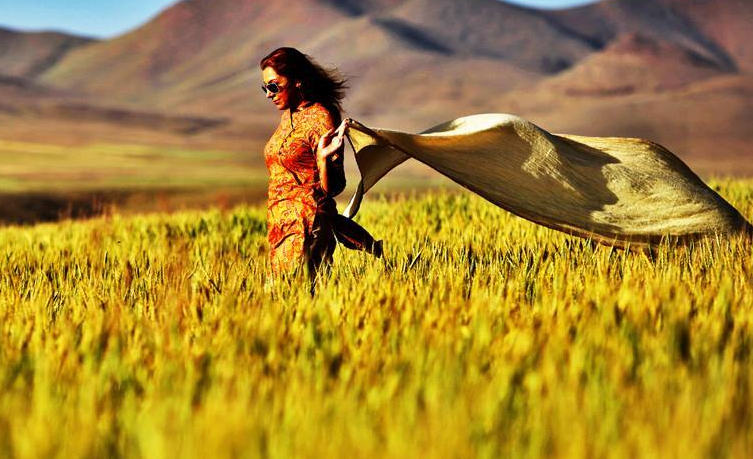Published: 31/07/2014
Region: Worldwide, Iran

 For women in Iran, wearing a hijab is a part of their daily lives. In fact, it is obligatory, whether they are Iranian or foreigners. For those women who want to declare their personal choice and post photographs without hijab, a London based Iranian journalist, Masih Alinejad has set up the Facebook page, “My Stealthy Freedom”.
For women in Iran, wearing a hijab is a part of their daily lives. In fact, it is obligatory, whether they are Iranian or foreigners. For those women who want to declare their personal choice and post photographs without hijab, a London based Iranian journalist, Masih Alinejad has set up the Facebook page, “My Stealthy Freedom”.
“I’m not asking people to take off their scarves,” Alinejad says, according to the Times. “But you never see these ordinary, smiling women, full of colour in the Iranian papers. I’m not fighting the hijab, I’m fighting censorship.”
Currently, her page has over 597,000 likes and is still going strong, three months after it was created. Almost all photographs uploaded are of women from Iran, yet, women from other parts of the world also posted pictures to show their support.
On the Facebook page, there are photographs of women on the beach, in green meadows, surrounded by mountains, in their cars, in front of street signs, in public parks and tourist sites. Some face the camera, whilst others prefer to keep their faces hidden either by wearing sunglasses or by taking shots from behind, their hair flowing down their backs. These women want to stay anonymous, as so not to get reprimanded by the Iranian authorities.
Despite the media attention the “My Stealthy Freedom” page has received internationally, some Iranian women were irked by it and believe that it is not the best way forward. According to the Economist, a 33-year old tourism worker in Tehran, who is no fan of the hijab, said, “This battle should not be fought by someone outside Iran. Attracting international attention means a crackdown.”
However, Guardian writer Haleh Anvari believes that although there is a lot to be done for women’s equalities in Iran, it is important for Iranian society to be seen as separate to the political system and this is becoming more urgent. In her opinion, the internet and social media are opening a window to an unseen corner of Iranian life.
Born and raised in Iran, Alinejad does not oppose the hijab. She believes that women should have the liberty to choose whether they wish to wear it or not. She, herself, wore the hijab on a daily basis until she left Iran in 2009. Her mother still wears the hijab.
It seems as though social media platforms have proven to be the place to exchange different opinions regarding this issue. As the “My Stealthy Freedom Campaign” gains popularity outside Iran, rival Facebook groups were set up, such as “Real Freedom of Iranian Women”, who claimed that wearing the hijab was a freedom in itself and that women should be proud to wear it.
Some conservative members of Iranian society took part in pro-hijab demonstrations in Tehran. Women wearing long black chadors, a more conservative form of the hijab, called for the government to arrest all women who are improperly covered. They held signs that read “Hijab is our pride” and “Man, where is your dignity? Where is your wife’s hijab?”
The Fars News Agency claims that “My Stealthy Freedom” promotes promiscuity.
Huffington Post notices that, “while some Muslim women in Europe are fighting for their right to cover themselves up with a burqa, the women of Iran must fight for their right to uncover themselves.”